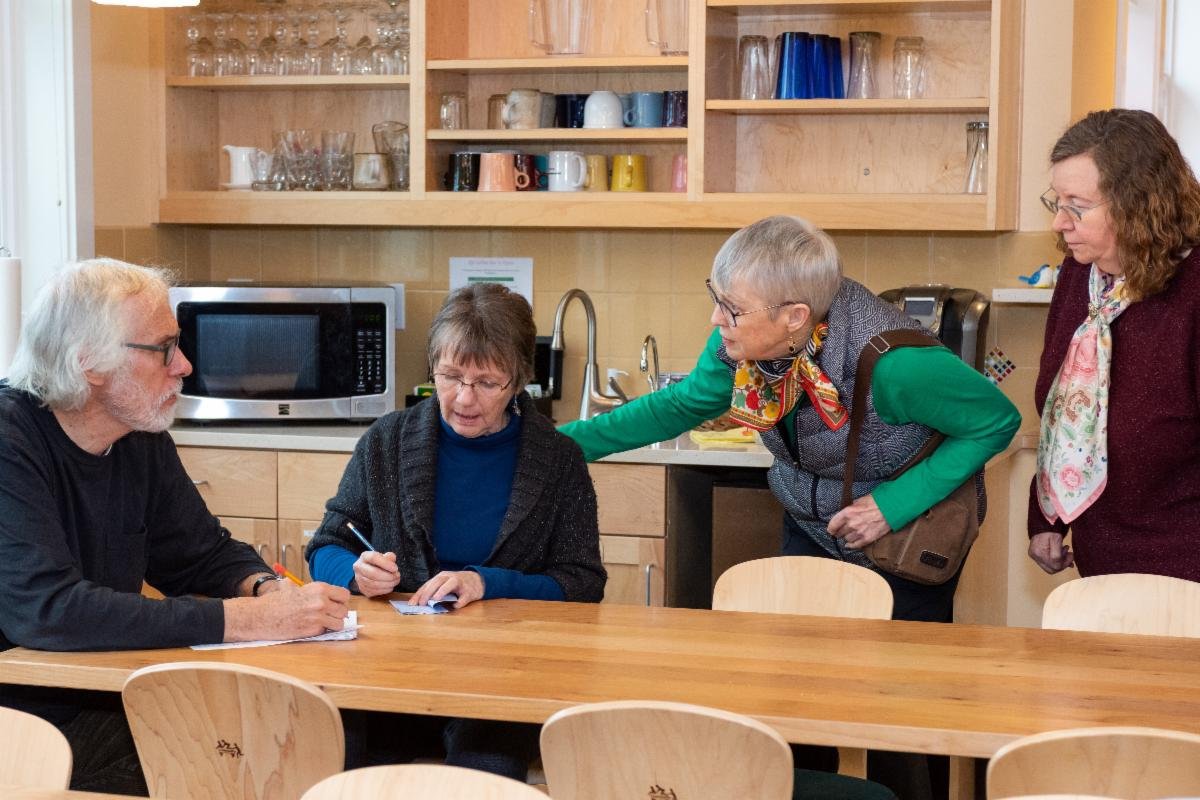Participatory Design in Affordable (Subsidized) Cohousing
As you may know, we're making a push with the U.S. Congress to allow future residents of subsidized housing to play a role in the design and management of their affordable housing project (more like a cohousing community and potentially, in fact, cohousing). All 5 of the congressional offices that I spoke to in person said that they will need a lot more support from congress people in addition to those five (Adam Schiff, Mark Amodei, Ami Bera, Jennifer Wexton, and Jim Costa). While the lame duck congress is not the place to push right now, the New Year is (they have pressing priorities until January 2023). So please start your letters in January and bcc me.
In fact, if we are to push this through, we need to do so this now before the next congress. That is before January 2025 (the 118th Congress).
Find Our Updated Sample Letter for Your Congress Person HERE
I'm happy to report that a few people have already started writing letters to their congress people based on the last newsletter. I've had great success in the past with making the ask, and getting specific projects built locally by changing a specific local law. Laws are there to serve the people and we can make needed adjustments if we lobby hard, argue the point and get a number of politicians on board. Local politics are just a microcosm of national politics. With that in mind, I’m approaching this as close to protocol as possible. The congressional attorneys will in fact write the revised law
This issue is very much a bipartisan issue. If future residents can participate, they can bring the costs of managing a project way down. If subsidized residents can participate in the design, then the design will work much better and people will take better care of everything. The head and assistant head of the D.C. Housing Authority told me that they need to enhance the community and a sense of belonging and accountability to dramatically decrease those costs. Each dwelling in the Housing Authority projects costs $10,000 per year to manage. They are clear about that number, and they are equally transparent that the number must come down to make subsidized housing sustainable. In a well-designed and high-functioning neighborhood, that number can go down to zero."
The services that people require in the absence of community are much more costly. Having a community where people know each other, and support each other, reduces the costly care of less-functional neighborhoods considerably. We did a project for single moms years ago and designed it to be a high-functioning community. Mercy Housing says that it is the easiest project they have to manage out of 10,000 housing units. They have one manager there one half-day a week. In other projects, we started with a full-time police presence—and took it down to zero through community organizing.
People often ask me, “Chuck, why not make this congressional effort a committee?” While I have lived in cohousing for the last 32 years, where committees and consensus are the basis of our organization and management, I believe that some things are best done by individuals. I know committees are great for most things—writing your congress person in mass will come later—but for now, please just write them.
The goal is to create a ground swell of obvious interest in this movement for functional neighborhoods. One thing that political consultants have been telling me is that it is okay, and actually preferred, if we send the same letter out to congress people in order to get the ball rolling. And congress consultants have told me to send letters to your congress person, and every other congress person that you can."
Please see these five explicit revisions that I am proposing to Title 6 & Title 24 HERE that will allow for better participation in the future.



